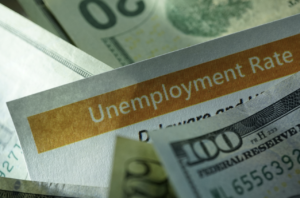Ads
The Starbucks union is currently on strike in three cities. The Starbucks Workers United members conducted their initial strike in 13 months on Friday and intend to escalate the strike until Christmas Eve. This would be the union’s most significant work stoppage since the organizing campaign at the coffee retailer commenced three years ago.
Starbucks’ birthplace, Seattle, as well as Chicago and Los Angeles, which the union identified as critical markets for the company, are scheduled to initiate strikes on Friday. The company was warned that the strike would extend to hundreds of locations across the country by Christmas Eve unless it commits to adhering to a framework for negotiating its first union contract.
Since December 2021, Starbucks Workers United has been organizing store-by-store throughout the company’s network after winning its inaugural union election in Buffalo. According to the most recent tally from the National Labor Relations Board, which supervises representation elections in the private sector, it has won the right to represent 12,000 workers at 528 stores. Additionally, the union has experienced a decline in support at 100 stores. However, this is still a mere fraction of the company’s 11,200 company-operated stores in the United States, which employed approximately 201,000 workers as of the end of September.
The competition for the initial contract Since its initial strike at approximately 100 locations in November 2022, the union has conducted a succession of strikes at a subset of its represented stores. Many of the stores that were on strike in the past were able to remain open as the company supplanted the unionized striking workers with managers and workers from adjacent non-union stores. CNN was informed by an individual who is well-versed in the effects of the strikes that only ten locations, which were distributed across three cities, were unable to operate as usual on Friday. Starbucks spokesperson Phil Gee stated, “Our store operations have not been significantly affected.” “We are cognizant of the disruption at a small number of stores; however, the vast majority of our US stores are operational and providing customers with their usual services.”
However, this is the first significant strike that the union has called since November 2023, despite the fact that the company and union have been in negotiations and have reported progress for much of the year.
In contrast to the recent open-ended strikes at Boeing, the Big Three manufacturers, and Hollywood studios, in which union members remain on the picket line until an agreement is reached, the union has only ever waged a strike against Starbucks for a predetermined duration. In recent years, US unions have increasingly favored shorter, predetermined-duration strikes, which have occasionally achieved significant success, such as the 2023 strike at healthcare behemoth Kaiser Permanente.
The union stated that it had established a framework with Starbucks management since February to resolve outstanding legal complaints and negotiate its initial labor agreement. However, it stated that management has failed to fulfill the terms of the agreement.
“No one desires to strike.” According to Fatemeh Alhadjaboodi, a bargaining delegate and five-year Starbucks barista from Texas, “It is a last resort, but Starbucks has violated its commitment to thousands of baristas and has left us with no alternative,” in a statement released by the union. “Despite the fact that Starbucks invested millions in top executive talent last year, it has failed to provide the baristas who are responsible for the company’s operations with a viable economic proposal.” This is merely the beginning. We will take any necessary measures to ensure that the company fulfills the commitment it made to us in February.
The organization maintains that it is dedicated to concluding a transaction and is prepared to re-enter the negotiation process. It stated that negotiations have been terminated by the union.
“It is disheartening that they have not returned to the table, given the progress we have achieved thus far.” “Over the course of 20 days since April, we have conducted over nine bargaining sessions,” stated the Starbucks statement. “We have reached over thirty significant agreements on hundreds of topics that Workers United delegates indicated were significant to them, including numerous economic issues.”
Starbucks stated that it is unable to accommodate the union’s request, as its “proposals” require a 64% immediate increase in the minimum wage for hourly partners and a 77% increase over the course of a three-year contract. This is not sustainable.
The union refutes that this is the sum of money it sought in the various economic proposals it submitted, asserting that it mischaracterizes and combines a variety of distinct demands. However, it declined to provide further information regarding its objectives.
The company stated that it offers an average salary of over $18 per hour and offers “best-in-class” benefits, such as health care, free college tuition, paid family leave, and company stock grants.
The company stated that no other retailer provides a comprehensive pay and benefits program.
However, the union alleges that Starbucks management has reversed its initial progress since September, when Brian Niccol assumed the role of CEO.
Michelle Eisen, a 14-year Buffalo Starbucks barista who was one of the organizers of the first organizing effort in the city, stated in a union statement that Starbucks failed to present viable economic proposals that included genuine investment in baristas in October, November, and December. “This is a reversal of the company’s commitment to ratifying the framework by the end of the year, despite the fact that it has made significant progress in recent months.” We are prepared to take any necessary action to demonstrate to the corporation the repercussions of failing to fulfill their obligations to baristas.
The union cited the company’s executive compensation, particularly the contract provided to new CEO Brian Niccol, as evidence that the company had the potential to improve. Niccol, who joined Starbucks in September, was granted 332,000 shares of Starbucks stock as part of his contract. These shares will vest over the next three years. As of Thursday’s close, the value of those shares is $29.5 million.






